Issues
We provide food for thought by looking at the big issues in our current food production and distribution system.
The negative impacts of our complex food systems on people, animals and the environment are now well understood. What we eat and where we buy our food from can have a huge impact on everything from animal welfare to climate change. Discover more about a vegan and low carbon diets in our food and drink news, features and shopping guides.
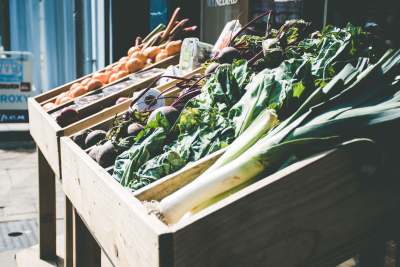
We provide food for thought by looking at the big issues in our current food production and distribution system.
Drawing on the growing food sovereignty movement, this section highlights ethical alternatives to a food system which is powered by large corporations rather than the people who produce the food.
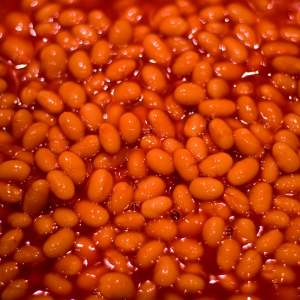
Choosing ethical and eco-friendly baked beans can contribute to a more sustainable diet.
In this guide, we evaluate 13 baked bean brands, highlighting our Best Buy recommendations and those brands to avoid.
View guide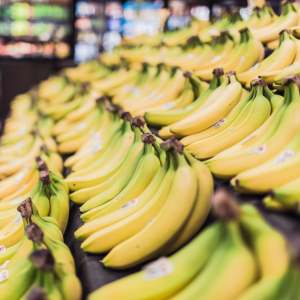
Finding ethical and sustainable banana brands.
This guide looks into the global issues behind bananas, a popular fruit which could be at risk of collapse.
View guide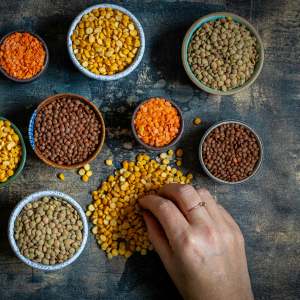
Find the most ethical and environmentally friendly beans and pulses. This shopping guide rates 18 brands of dried and cooked beans and pulses, and looks at recommended brands and brands to avoid.
View guide
Find ethical and sustainable biscuits brands. Ratings for 50 brands of biscuits with recommended brands and what to avoid.
Many people love a biscuit with a cuppa and they are a popular store cupboard staple. But are biscuits brands ethical and sustainable?
View guide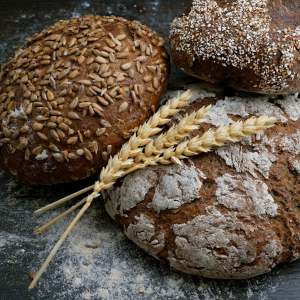
In this guide we investigate the ethical and environmental record of bread.
Bread is a staple food for millions of people, but how much do we know about its environmental impact, or the policies of big bread manufacturers?
View guide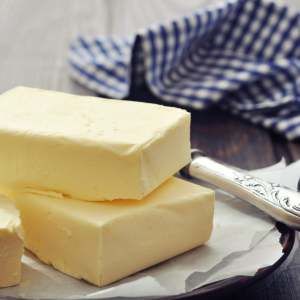
Find ethical butters, vegan butter and margarine, and organic butter.
This guide reviews 51 butter, margarine and spreads brands, including dairy-free butter and margarine.
View guide
Find ethical and eco friendly breakfast cereals. This guide rates 38 breakfast cereal brands on ethical and sustainability issues, with recommended buys and what to avoid.
Many people start their day with a bowl of cereals. This guide has some exceptionally low scoring brands, but there are lots of high scoring ethical cereal brands available.
View guide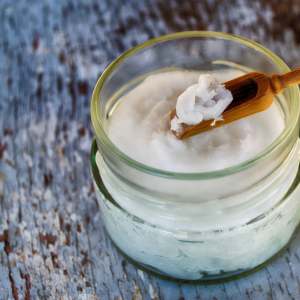
In this guide we investigate the ethical and environmental record of 8 coconut oil brands.
Coconut oil has seen a surge in interest in the last decade, for food use, mouth health, hair improvement and for skin.
View guide
Finding an ethical and sustainable coffee shop. We rank the ethical and environmental record of 14 coffee shop chains.
We look at big names like Costa and Starbucks to see if they are worthy of your custom. And if you are able to choose where you go, which is best?
View guide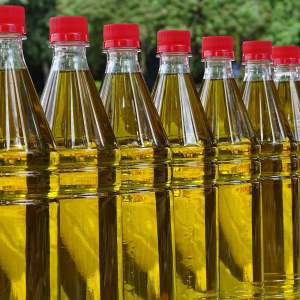
In this guide we investigate the ethical and environmental record of 19 cooking oil brands.
Not all fat is the same. Not only does it taste different, but different oils have different climate impacts. Find out more in this guide to cooking oils.
View guide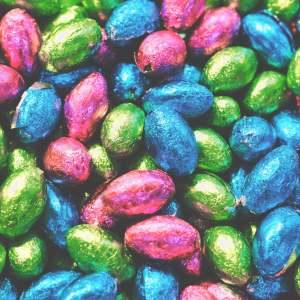
How to find ethical Easter eggs. Ranking the ethical and environmental record of 37 Easter egg brands.
The problems with the chocolate industry such as child labour, poverty wages and cocoa sourcing mean many Easter eggs may not be that ethical or sustainably produced. We give our recommendations and who to avoid.
View guide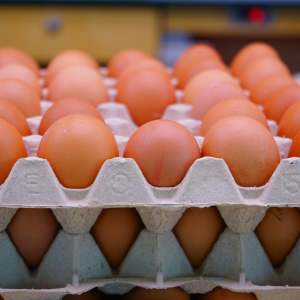
Finding ethical and environmental eggs and vegan egg alternatives. Ratings for 36 brands of eggs and egg alternatives on welfare, climate and other sustainability issues.
Is it ethical to eat eggs? We investigate the differences between cage, barn, free range, organic and biodynamic eggs.
View guide
Find ethical and environmentally friendly beer and lager. This guide rates 70 beer and lager brands to find the most ethical.
With some low scoring brands in the guide, and many high scoring ones, it's possible to find an ethical beer to suit your taste and budget. This guide gives our recommended buys and what to avoid.
View guide
Finding ethical and eco friendly cat food. Ethical and sustainability ratings for 29 brands of cat food, with recommended buys and what to avoid.
In this guide we look at what goes into cat food and rate the major cat food brands like Sheba and Whiskers, along with Nestle who owns Purina and Lily's Kitchen, plus smaller eco friendly brands, some of which are vegetarian and vegan.
View guide
Looking for an ethical and sustainable chocolate brand?
This guide rates and ranks 31 chocolate brands, with our unique Best Buy recommendations and the brands to avoid.
View guide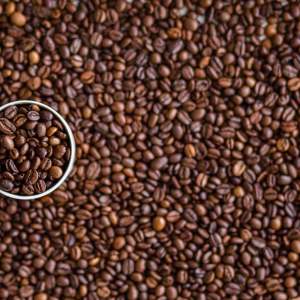
Our guide will help you find a sustainable and ethical coffee brand.
We rank the ethics of 30 brands of ground coffee, coffee beans, instant coffee and coffee pods, give our unique Best Buy recommendations and suggest which brands to avoid.
View guide
Finding ethical and eco friendly dog food.
In this guide we rate 32 brands of dog food on a range of ethical and environmental issues, to give you recommended brands and what to avoid.
View guide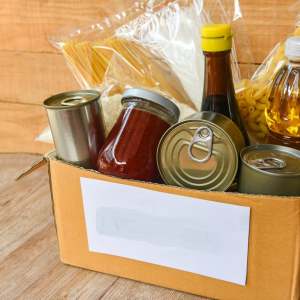
Find ethical alternatives to supermarkets, with guide to 15 brands of eco alternatives for buying food and household goods.
In this guide we rate 15 brands of alternatives to supermarkets. Many of these eco retailers are doing things differently so if you don't have a local independent wholefood shop, these shops may match your requirements.
View guide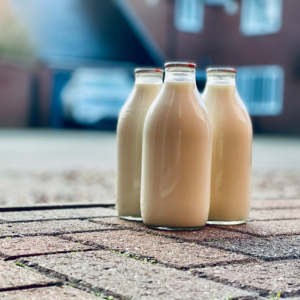
Is there such a thing as ethical and sustainable dairy milk?
In this guide we investigate, score, and rank 32 dairy milk brands on ethical and environmental issues and ask if there is any ethical milk.
View guide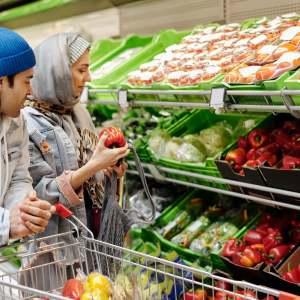
Which is the most ethical UK supermarket?
In this guide, we rate the ethical and environmental records of 12 supermarkets, and give our Best Buy advice, recommended brands, and companies to avoid.
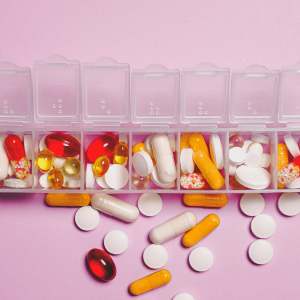
Finding ethical vitamins and supplements. Ethical and environmental ratings for 23 brands, with recommended buys and brands to avoid.
In this guide we explore the issues around vitamins, minerals and supplements and compare the major brand names with smaller companies to find the most ethical.
View guide
Are there any ethical and environmental fast food brands?
We investigate and rate the ethical policies and practices of 18 fast food brands in the UK including McDonald's, KFC and Burger King.
View guide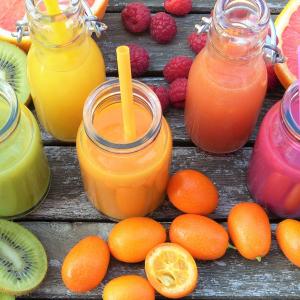
Find ethical and environmental fruit juices. This shopping guide reviews fruit juice brands on their ethical policies.
Fruit juice is sometimes seen as a 'halo' food - good for you with no problems. But it is high in natural sugars, and may have more sugar added, as well as having residues of pesticides and other chemicals.
View guide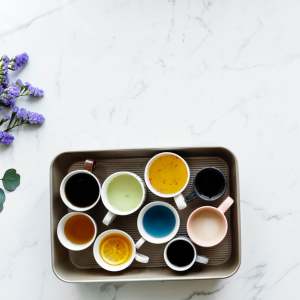
Finding an ethical and eco-friendly herb and fruit tea. This shopping guide ranks the environmental and ethical record of 30 brands of herbal and fruit teas and rooibos tea.
Many eco-conscious people may enjoy a fruit or herb tea, and put the bag in the compost. But, it's a surprising fact that many tea bags still contain plastic. A fact you may have discovered a few years later when you find plastic in your compost!
View guide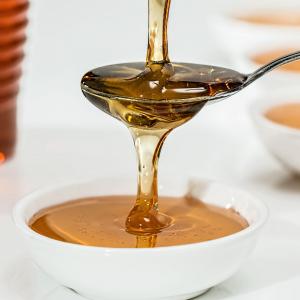
In this guide we investigate the ethical and environmental record of 28 honey brands.
Honey is an animal product and not vegan. This guide explores some of the problems associated with honey production, but also ways of obtaining honey with less harmful impacts.
View guide
Our guide to mince pies ranks 18 brands, from the biggest names in the market to supermarket own-brands and independent brands.
Organic? Palm oil free? Vegan? There's plenty for an ethical consumer to consider when choosing which mince pies to buy.
View guide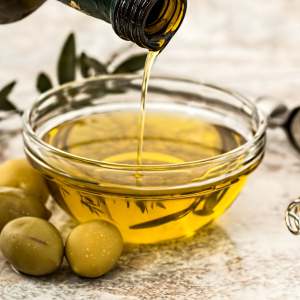
How to find an ethical and environmentally-friendly olive oil. Ratings for 15 brands of olive oil.
In this guide we look at the climate impact of olive oil, who makes organic olive oil, and how olives are harvested.
View guide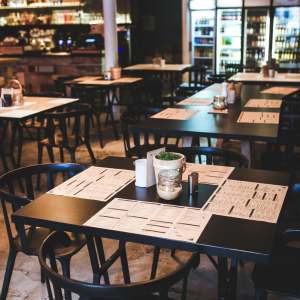
In this guide we investigate the ethical and environmental record of restaurant chains.
How easy is it to eat out sustainably and ethically? We review the options to help you make an informed choice.
View guide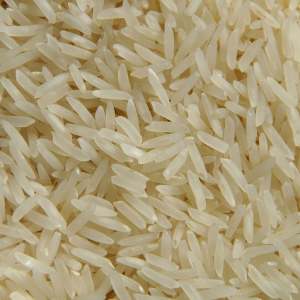
In this guide we investigate the ethical and environmental record of 22 rice brands.
Rice is a staple food crop for millions of people around the world. We look into whether you can buy sustainably grown and fair trade rice.
View guide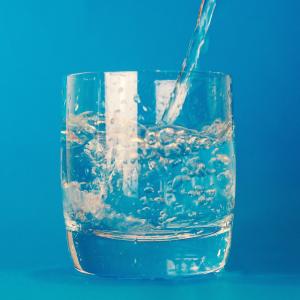
Finding ethical and environmental soft drinks. We review brands of soft drinks for their ethical and environmental record, with recommended brands and what to avoid.
This guide includes a range of soft drinks including energy drinks, carbonated fruit drinks and traditional fizzy drinks.
View guide
Finding an ethical and eco-friendly sustainable tea. We rank and rate 31 tea brands on their ethical and environmental record.
How do the mainstream tea brands like PG Tips, Tetley, Twinings and Yorkshire Tea compare with smaller ethical brands? We look at their policies on workers' rights and supply chains to see who makes ethical tea.
View guide
In this guide, we look at a range of meat alternatives, including veggie burgers, sausages, mince and more.
We provide ethical & environmental rankings of 36 meat alternative brands, including tofu, plus Best Buy advice, recommended brands and companies to avoid.
View guide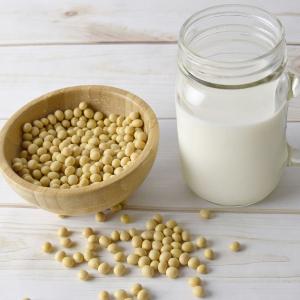
All plant milks have lower emissions and land use than dairy milk, but are some more ethical and environmentally friendly than others?
This guide includes ethical & environmental rankings for 20 vegan plant milk brands, including organic and powdered plant milk.
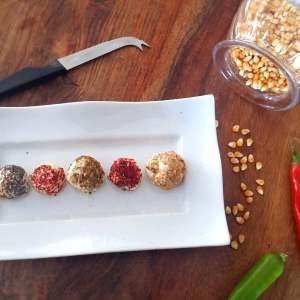
Is vegan cheese better for the environment and more ethical? We rate and review 17 vegan cheese brands, with recommended brands and which brands to avoid.
In this guide to ethical vegan cheese we take a look at the ethics of cheese companies from major international dairy brands, to small artisan independent producers.
View guide